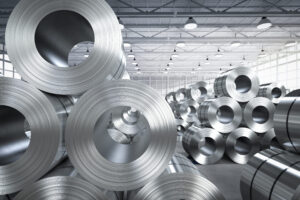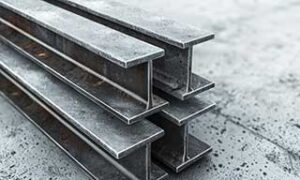Enterprise resource management (ERP) solutions are game changers for manufacturing and distribution companies. They provide benefits for all aspects of the business, including planning, processing, and manufacturing. But it’s in the supply chain where ERP systems can have one of the biggest impacts.
How ERP Solutions Improve Supply Chain Management
The bigger your organization becomes, the longer and more complicated your supply chain will be. There are a lot of nuances to track, and relying on spreadsheets and multiple specialty software programs just won’t cut it. That’s where ERP comes in. It is a comprehensive software solution that encompasses all aspects of the business, providing a single source of access to all employers and making it easier for them to track, organize, and optimize.
Some aspects of the supply chain where ERP can help include:
Planning
In the past, manufacturers faced a constant battle to meet demand. They were either stocking up on raw materials and preparing for potential demand, only to find themselves with too much stock or struggling to deal with a sudden influx of orders. It was a difficult balance to maintain, but this is one of the areas where ERP excels.
ERP feeds data from seasonal trends and historical demand—among other things—into complex algorithms that can predict when demand will occur and how strong that demand will be. It can then prepare schedules to ensure that the machines are ready, the labor force is sufficient, and the warehouse is stocked with all of the necessary raw materials.
Purchasing and Procurement
An ERP system can manage the entire procurement and purchasing process, taking menial jobs out of the hands of skilled employees and reducing the risk of human error. Suppliers are checked and vetted, contracts are drafted, purchase orders are created, and most of the ordering process is automated.
Orders can still be approved manually, allowing for some human verification, but the time-consumers that come before that are streamlined, and the entire process is quicker, easier, and less taxing on the company’s resources.
Coordination and Execution
It doesn’t matter how seemingly complex the process is, ERP systems can handle it. They can be tasked with coordinating inventory, confirming orders, and executing the manufacturing process. The company has high-level, real-time insights into every step of this process, allowing them to highlight areas that can be improved.
Monitoring and Maintenance
Before ERP systems became commonplace, companies would pull data from various systems before consolidating, organizing, and analyzing to understand the bigger picture. It was resource-heavy process that was prone to mistakes. These days, ERP systems can monitor processes in real-time, drawing data from all relevant components and painting a precise picture that is easy to understand. Actionable insights regarding poorly maintained equipment, sub-optimal processes, and breakdowns can eliminate potentially costly issues and ensure everything runs smoothly.
Warehouse Management
ERP solutions can use fully integrated warehouse management systems (WMS) to run warehouses more efficiently. They can monitor current inventory levels, run regular productivity checks, and look for improvements in picking and packing. The result is faster, cheaper, and safer warehousing.
Company-Wide Collaboration
An ERP system makes it easier for all departments to track the supply chain by creating a single source of data. Everyone is reading from the same playbook, and as it updates in real time, the right hand always knows what the left hand is doing.
Benefits of Using ERP for Supply Chain Management?
Whether you’re a multi-line processor, coil processor, a metals service center, or anything else in the metal fabrication industry, there are a number of benefits to using ERP systems:
Scalable and Flexible Solutions
You don’t need to be a massive organization to implement an ERP system, nor do you need to worry about buying and maintaining large servers, as these systems are often stored and managed on the cloud. Companies of all sizes can incorporate these solutions, and they will then grow alongside the business, unlocking new features and capabilities as and when needed.
Greater Efficiency
Improved visibility makes the entire supply chain more efficient by creating actionable insights. Business owners and stakeholders can see where their money is being spent and quickly learn about shortcomings in the supply chain.
Improved Workflow Automation
ERP automates basic aspects of the supply chain that would otherwise be managed by skilled individuals that are better utilized elsewhere. It can alert the necessary departments to potential maintenance issues and ensure the warehouse is stocked with the right raw materials needed to kick-start the production process.
Fewer IT Headaches
The fact that all data is stored in a single database eliminates the issues caused by constant, large-scale data migrations. It also means the company isn’t juggling various different programs and struggling to convey the right information to the relevant department.
Increased Retention
The steel fabrication sector is highly competitive, and the same is true for the manufacturing industry overall. Customers demand better products with less lead time. By automating processes that once required significant man hours, including purchase orders, invoicing, and quality control, ERP hastens lead time and gets the end product into the client’s hands in as little time as possible.
Summary: ERP for Metal Fabrication Supply Chain Optimization
Whether you deal with steel fabrication, metal framing, plate processing, or anything else, ERP can predict future demand to ensure you’re ready. You’ll waste less money on unused materials and stock and can ensure you’re prepared for every eventuality. It optimizes the entire supply chain without incurring any great cost or taking any substantial risk.
The best ERP systems, including those provided by RealSTEEL, also incorporate various software suites and components to deal with other aspects of the organization, including:
- Steel service center software
- Steel nesting software
- Metal framing software
- Coil splitting software
- Multi-line processing software
- Coil processor software
- Cut-to-length software
- Sheeting and leveling software
- Flat rolled software
Contact us today to learn how RealSTEEL can benefit your industry and discover why this ERP solution is trusted by businesses of all sizes across the steel fabrication sector.




